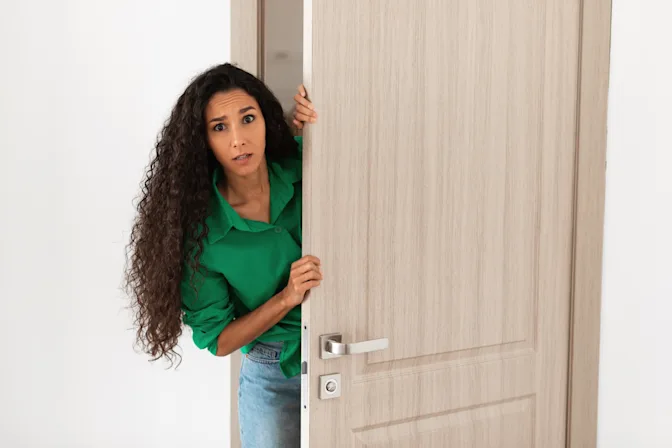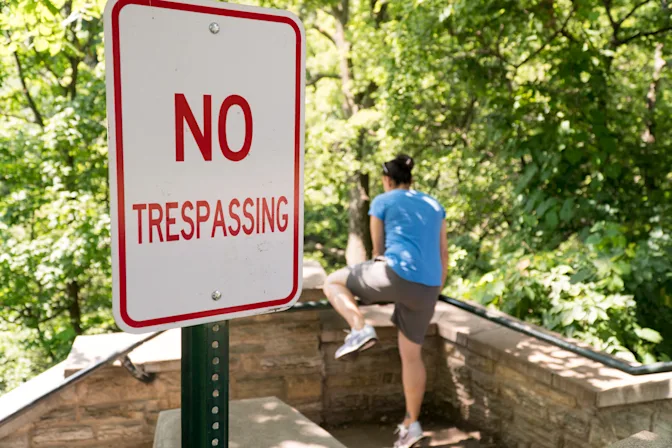
How Squatters' Rights Are Putting You at Risk
You've heard horror stories about squatters, but what is fact and what is fiction? Is squatting something to worry about for your home?
A family from Fresno, California, had just finished remodeling their new home and was about to move in when they encountered a problem: strangers were living in it.
 These squatters claimed they were renting it, forcing the owners to sue them to get them evicted. The process took months, and while the court eventually kicked the squatters out, they left behind a mess and caused the real owners significant financial hardship.
These squatters claimed they were renting it, forcing the owners to sue them to get them evicted. The process took months, and while the court eventually kicked the squatters out, they left behind a mess and caused the real owners significant financial hardship.
Why did it take so long to evict people living in someone else's house? Is squatting something you should worry about?
What Is Squatting and What Are Squatters' Rights?
Squatting is when a person or group (like a family) resides in a home or building of which they do not have legal ownership. This differs from holdover tenets, who have let their leases lapse, and from trespassers, who have criminally entered the building but do not intend to make their residence there.
 Theoretically, squatters could take over any building or home. However, most squatting occurs in abandoned or unoccupied buildings. Second homes and properties owned by out-of-state or out-of-country investors who may not have visited in years are frequent targets.
Theoretically, squatters could take over any building or home. However, most squatting occurs in abandoned or unoccupied buildings. Second homes and properties owned by out-of-state or out-of-country investors who may not have visited in years are frequent targets.
When squatters occupy a space, they can (and usually will) invoke a commonly held law called adverse possession, better known as squatters' rights, to assert they should remain on the property. The laws around adverse possession vary across jurisdictions, but generally they allow squatters to become the legal owners of the building or home if they meet certain criteria.
The usual criteria for squatters' rights include:
- Actual Possession: The squatters must physically live in the place in question.
- Exclusive Possession: The squatters cannot share the property with others. For example, squatters can't pretend to be the landlord and rent the place out if they want to assert squatters' rights.
- Open and Notorious Possession: The squatters openly and obviously live in the building in question and make no attempt to hide their residence.
- Hostile Use: The squatters did not receive an invitation or permission from the owner to live in the building.
- Continuous Use: The squatters have lived in the building in question for a set period without interruption (squatters are not allowed a second home, in other words). The length of the period depends on the jurisdiction. In the United States, it can be as low as seven years in Tennessee or Utah or as high as 30 years in New Jersey and Louisiana.
Furthermore, squatters have the right to defend themselves in court and present evidence showing why they should be allowed to stay.

Why Is This Allowed? And What Can Be Done About It?
The laws protecting squatters exist for good reasons. They protect tenants from being evicted unjustly and prevent absenteeism, forcing owners to stay current on their taxes and use the property. For example, there are documented cases of squatting as a political protest to combat unfair housing markets. Moreover, some jurisdictions allow squatters to avoid criminal liability if they have beautified or improved the home or building.
However, there will always be people who exploit or abuse well-meaning laws, like the squatters who move into houses they don't own and assert ownership, forcing the rightful occupants to fight them in housing court. This can take a long time, burden the owners with legal fees, and be subject to delays (sometimes caused by a savvy squatter trying to stretch out proceedings). Some squatters might even create fake deeds or contracts to protect themselves, but this is considered falsifying documents, which is a more explicit crime.
Additionally, squatters could damage the property or run up utility costs that they leave for the rightful owner to pay.
If you discover squatters on your property, contact a lawyer immediately. And make sure, if you're moving, that you do so as soon as possible and get the locks changed promptly.
References: Squatters' departure ends dream home nightmare for Fresno family | What is a Squatter and What Are Squatter's Rights? | Massachusetts Squatter's Rights & Adverse Possession Laws for 2024 | Rights, Laws, & Protections | 'Fairly big problem': Squatters invade homes and refuse to leave. How is this legal? | Squatters' Rights: What Landlords Need To Know | Squatters' Rights: A Guide to State Law & How-To Evict























